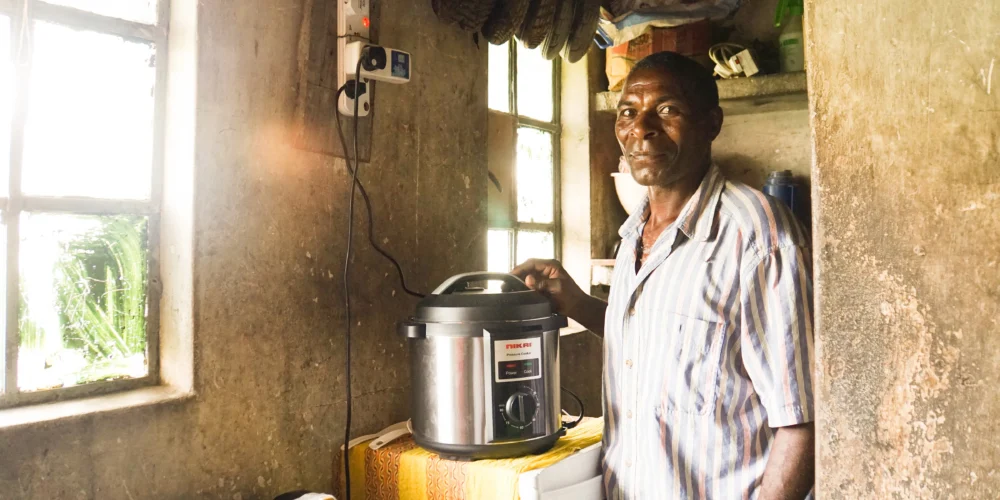Our June Reading List
As the clean energy access sector responds to COVID-19, we’ve been consolidating our favourite articles and webinars that offer insight into the role of energy and appliances in pandemic response and resiliency

By Andrew Luchs, Clean Energy Access Fellow at CLASP, Co-Secretariat of the Efficiency for Access Coalition
As the clean energy access sector responds to COVID-19, we’ve been consolidating our favorite articles and webinars that offer insight into the role of energy and appliances in pandemic response and resiliency.
Check out our June reading list:
Gender and Energy at Center Stage in COVID-19 Battle: Powering a More Gender-Equal Recovery
— ENERGIA
The COVID-19 pandemic has created both a social and economic crisis that disproportionately affects women. Many existing gender-based vulnerabilities have been exacerbated by cramped conditions and women’s lessened ability to leave their homes. ENERGIA’s recently published paper offers recommendations to not only mitigate the pandemic’s impacts, but to create sustainable, positive change towards gender equality and women’s empowerment.
— Steven Hunt, Senior Energy and Innovation Advisor at the Department for International Development
Steven Hunt’s article provides insights on the progression of mini-grids in Africa with linkages to the Green Mini-Grids Africa program. Hunt includes learnings from a variety of countries, but highlights Sierra Leone’s relevant work powering health clinics in the post-Ebola context. Hunt argues that like the 2014–2015 Ebola crises, COVID-19 crisis has changed “the way forward” by highlighting the need for health system electrification. Sierra Leone can serve as a case study for the wider sector and provide insights into the connection between energy access and pandemic response.
— The Efficiency for Access Coalition & PowerGen Renewable Energy
Electric pressure cookers (EPC) represent a viable clean cooking solution for communities living on mini-grids, combining low energy consumption and high pressure to cook household staples. To evaluate the need and use-case for EPCs, the Efficiency for Access Coalition conducted a small- scale study with PowerGen Renewable Energy mini-grid EPC customers in rural Tanzania. In the pandemic context, EPCs provides a wide range of benefits, from reducing carbon emissions and personal exposure to harmful pollutants, to lowering the burden of disease associated with household air pollution.
— Ipsita Das, Thomas Klug, P. P. Krishnapriya, et al.
This article reviews 130 studies to offer insight into the linkages between women’s empowerment and energy access. There is weak evidence on empowerment contributing to development outcomes (female empowerment as a driver of energy choices) and determinants of empowerment (impacts of energy on female empowerment). The authors encourage future studies to broaden the sector’s understanding of gender empowerment, as current indices focus on more niche aspects of the appliance–empowerment relationship.
COVID-19 and Renewables — Impact on the Energy System Webinar
— CEER and IRENA
This month we attended a webinar hosted by CEER and IRENA on the impact of COVID-19 on Europe’s energy system. In Europe, renewable energy sources (RES) have played an unique role in response to the pandemic, selling up to 100% more electricity during the crisis. Wholesale prices have decreased due to a drop in demand, but the energy system’s reaction to the crisis has demonstrated how RES strengthens overall system security through diversification of energy sources and integration[HB1] of new sources.
The crisis has also positively affected on climate goals — increasing RES usage has led to CO2 emissions reduction. Dr. Gielen of the IRENA Innovation and Technology Center emphasized that the European COVID Stimulus Package should include retrofitting buildings for energy efficiency to supply jobs, revitalize construction activity, and achieve climate goals.
***
Access to clean energy and appliances can offer solutions to the current crises that will benefit communities around the world long-term. As governments and organisations develop COVID-19 response plans, investment in clean technologies will both mitigate the impacts of the pandemic and work towards other critical SDGs.